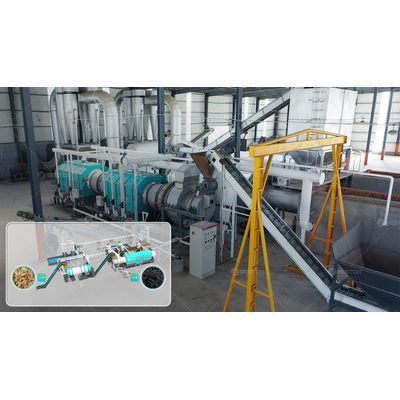

- Home
- Companies
- Beston Group Co., Ltd.
- Articles
- How to Invest in a Suitable Rice Husk ...

How to Invest in a Suitable Rice Husk Carbonizer
Investing in a rice husk carbonizer can be a profitable and environmentally conscious decision, especially for those in the agricultural or renewable energy sectors. The carbonization process transforms agricultural waste like rice husks into biochar, a valuable material with diverse applications. However, selecting the right carbonizer requires careful consideration of several key factors, including operational efficiency, environmental impact, and long-term profitability.
Assess the Processing Capacity
The first factor to consider is the processing capacity of the rice husk carbonizer. This refers to how much rice husk the machine can convert into biochar within a given period. For small to medium operations, a rice hull carbonizer with a capacity of a few hundred kilograms per hour might suffice. Larger enterprises should opt for machines with higher throughput, ensuring they can process larger volumes of rice husk efficiently. It's important to choose a machine that aligns with your production goals, avoiding either underutilization or overexertion of equipment.
Evaluate Energy Efficiency
Energy efficiency is crucial when selecting a rice husk carbonizer. The carbonization process requires significant energy, but a well-designed machine can recover some of that energy and reuse it in the process, reducing overall fuel consumption. Opt for a machine that incorporates heat recovery systems and minimizes energy waste. Investing in an energy-efficient carbonizer not only lowers operating costs but also enhances the sustainability of your production line, making it a more attractive option for investors and regulators alike.
Understand Emission Control Systems
Environmental regulations are becoming stricter in many regions, especially concerning air quality and carbon emissions. A quality rice husk carbonizer should be equipped with modern emission control systems. These systems capture and neutralize harmful gases, such as carbon monoxide and volatile organic compounds (VOCs), produced during the carbonization process. Look for machines that comply with local environmental standards and ensure minimal atmospheric impact. Investing in a carbonizer with robust emission controls can prevent costly fines and improve the long-term viability of your operation.
Consider Automation and Labor Requirements
Automation is another critical factor in selecting the right rice husk carbonizer. Fully automated carbonizers require less manual intervention, which reduces labor costs and enhances safety. Semi-automated machines, while less expensive, may need more personnel to operate, increasing labor expenses over time. Evaluate the level of automation that best suits your operational model and budget. While fully automated systems may have higher upfront costs, they often provide better long-term returns due to lower operating expenses.
Examine Durability and Maintenance Costs
Durability is a vital aspect when investing in any industrial equipment. A durable rice husk carbonizer should be constructed from high-grade materials capable of withstanding the high temperatures and abrasive nature of rice husk. In addition, consider the ease of maintenance. Machines that require frequent repairs or replacements can lead to costly downtime. Look for carbonizers with a proven track record of longevity and minimal maintenance demands to ensure a steady production line and maximize ROI.
Assess Cost Versus Value
Finally, when considering the cost of a rice husk charcoal making machine, it is essential to assess the value it brings. While cheaper machines might seem appealing initially, they may lack the advanced features needed for efficient and eco-friendly production. On the other hand, more expensive models may include advanced technologies like heat recovery, emission controls, and automation, which can significantly reduce long-term operational costs. Weigh the initial investment against the potential long-term savings and benefits to determine the most suitable option for your needs.
Conclusion
Investing in a rice husk carbonizer involves more than just purchasing a machine; it requires a strategic approach that considers capacity, energy efficiency, emission control, automation, durability, and overall cost. By carefully evaluating these factors, you can ensure that your investment not only meets your current production needs but also positions your business for long-term success in a sustainable and profitable manner.
